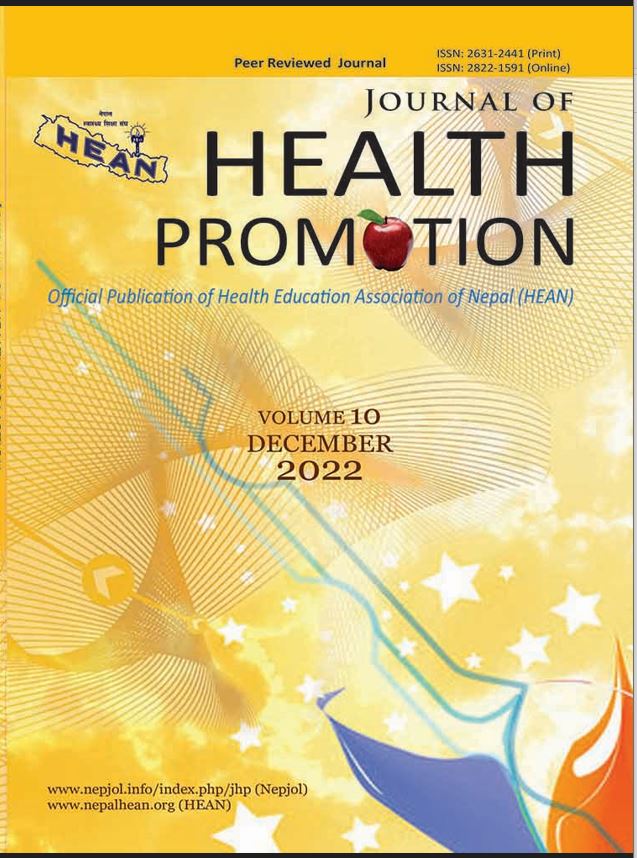Multilevel factors appealing to junk food consumption among school children and adolescents: A systematic review
DOI:
https://doi.org/10.3126/jhp.v10i1.50981Keywords:
adolescents, dietary behaviors, fast food consumption, nutrition education, socio-ecological model (SEM), young childrenAbstract
Junk food consumption (JFC) is increasing and it is common mostly among schoolchildren and adolescents (SCA). The consequences of JFC have become a public health concern. The study aims to explore the factors associated with the JFC among SCA using the socioecological model (SEM). Electronic databases such as PubMed, Google Scholar, ResearchGate, and bibliographic references were used to obtain the related papers following the standard process of identification, screening, eligibility assessment, study quality assessment, and data extraction from the selected articles. Strengthening the reporting of observational studies in the epidemiological (STROBE) checklist was used to assess the quality standards of the papers. Out of the 785 papers, we synthesized the results from 22 quantitative articles based on merits. The findings of the study indicate that JFC behavior among the SCA is influenced by multilevel factors that extend from intrapersonal to public policy through interpersonal, organizational, and community levels. The results of the study suggest that more than two-thirds, more than one-third, near to one-third, and half of them supported with microsystem, mesosystem, exosystem, and macrosystem constructs of the SEM respectively. However, age, sex/gender, taste and pleasure of eating junk food, knowledge of junk food and attitude towards dietary choices of the microsystem (individual factors) and mass media exposure and marketing strategies of the macrosystem (public policy factors) remain the most influencing systems. The results indicate that individual and public policy level constructs are important to explaining JFC among the SCA. This implies that the researchers and policymakers need to consider multilevel factors while designing and implementing the school-based nutrition education programme to promote healthy dietary outcomes in the SCA.
Downloads
Downloads
Published
How to Cite
Issue
Section
License
Copyright (c) 2022 Health Education Network (HEAN)

This work is licensed under a Creative Commons Attribution-NonCommercial 4.0 International License.
© Health Education Association of Nepal (HEAN)
Authors are required to transfer their copyright to the Health Education Association of Nepal (HEAN).
The materials of this publication may be reproduced, reviewed and translated, acknowledging the source "Journal of Health Promotion".




